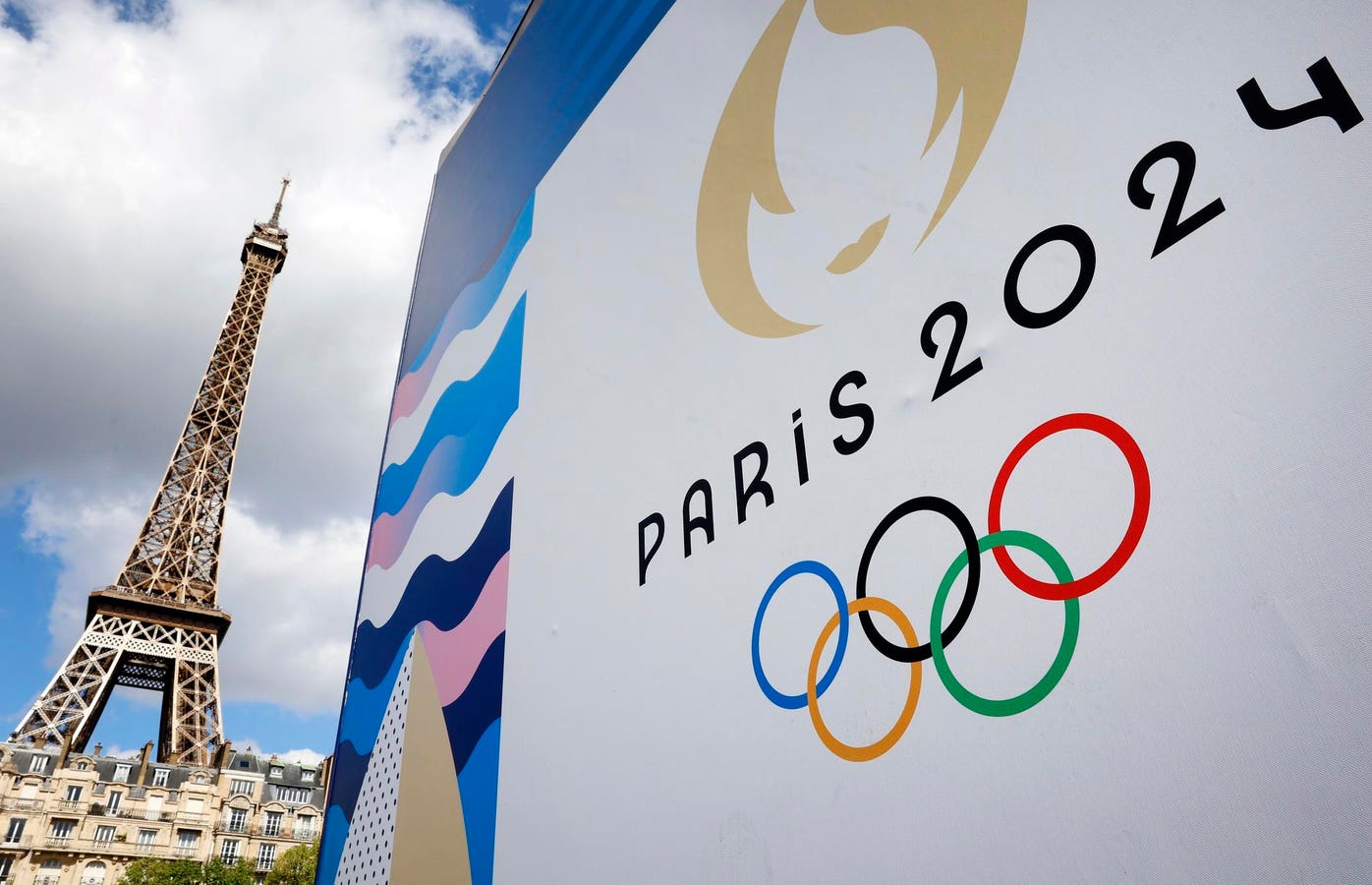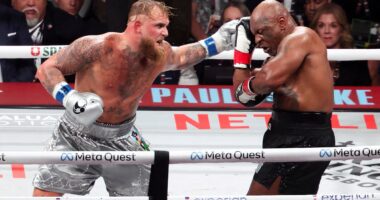Share to Facebook Share to Twitter Share to Linkedin
PARIS, FRANCE – APRIL 21: The Paris 2024 logo, representing the Olympic Games is displayed near the … [+]
Eiffel Tower three months prior to the start of the Paris 2024 Olympic and Paralympic games on April 21, 2024 in Paris, France. The city is gearing up to host the XXXIII Olympic Summer Games, from 26 July to 11 August. (Photo by Chesnot/Getty Images)
Getty Images
The Paris 2024 Olympics are in full swing, with major events like swimming, soccer, and gymnastics drawing huge audiences. The excitement is clear, with nearly 29 million viewers tuning in for the opening ceremony and over 32 million watching the first full day of competition on NBCUniversal networks, both significant increases from the 2020 Tokyo Games. These impressive viewership numbers not only demonstrate the enthusiasm for the Games but also highlight the significant exposure audiences have to women athletes and teams. Historically, the Olympics have provided significant media exposure for women athletes, often matching or surpassing the coverage of men’s events. Importantly, the 2024 games are on pace to match recent trends in coverage, with previous women’s Olympic events accounting for more than 50% of the total broadcasts. Athletes like Simone Biles and Sunisa Lee have been making headlines in the lead-up to the 2024 Olympics, and teams such as women’s soccer and basketball have enjoyed consistent coverage as well. That being said, while the 2024 Games continue to highlight the achievements of women in sports, they also expose the ongoing challenges in achieving true equity for Olympians.
Lack of Awareness
Although women athletes and teams often gain increased exposure during the Olympics, consistent coverage leading up to the events is frequently lacking. For instance, the U.S. Women’s Water Polo team is vying for their fourth consecutive gold medal at the Paris Games, an unprecedented achievement for any team, men’s or women’s. Despite their decade-long dominance, their success remains largely unnoticed due to insufficient media exposure. In response to a call for more support by their team captain Maggie Steffens, an unexpected sponsor, Flavor Flav, stepped up. He has become a major supporter, offering to pay bonuses to each squad member, helping to bridge the gap in support for Olympic women athletes. The U.S. Women’s Rugby team, who just secured a bronze medal in Paris, their first in program history, recently experienced similar external support when Washington Spirit owner Michele Kang pledged to provide $4m over four years to the program. While it is still unclear how U.S. Rugby plans to allocate the funds, it is clear that more financial support is needed for their athletes and for continued program development. Unfortunately, as it currently stands, women’s teams consistently need to win prior to receiving the funding necessary to equitably develop and sustain their programs.
Lack of Financial Support
Contrary to popular belief, U.S. Olympic athletes are not funded directly by the USOC for their training and competition expenses. The U.S. Olympic and Paralympic Committee provides monetary incentives to medalists via the “Operation Gold” payout program. In 2024, athletes will receive $37,500 for each gold medal won in Paris, $22,500 for each silver, and $15,000 for each bronze. Despite these rewards, it is insufficient to sustain an athlete’s career. Instead, athletes must secure outside sponsors and often work additional jobs to sustain their Olympic dreams. For men athletes, this task is generally less burdensome due to the long standing support they receive across sport spaces. However, for women athletes such as track and field star Gabby Thomas and Rower Michelle Sechser, securing sponsorships, especially in non-traditional events that lack the support seen in team based sports such as basketball and soccer, becomes even more challenging. Team-based USOC sports, such as those associated with U.S. Soccer, have different structures in place, providing more resources for travel and training, and offering compensation to many players. This system is rare though, and in order to level the playing field for women Olympians further, the USOC should reconsider their current compensation approach.
Follow me on Twitter or LinkedIn. Lindsey Darvin Following Editorial Standards Print Reprints & Permissions





